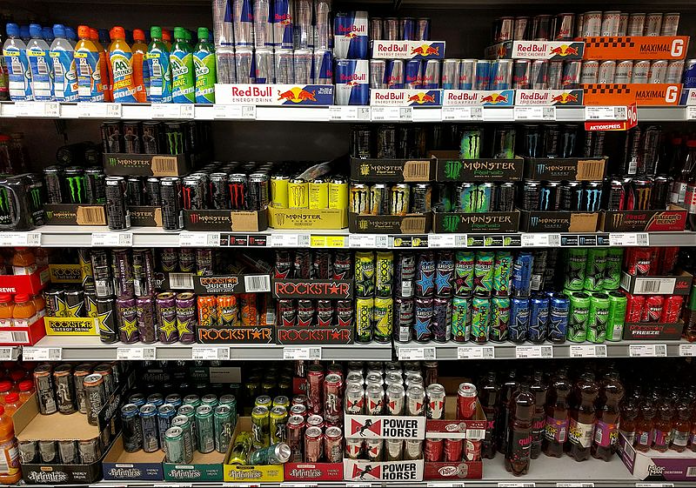Energy drinks are marketed to increase alertness and energy levels. Beverages like Red Bull, 5-Hour Energy, and Monster Energy are examples of popular energy drink products that have catapulted to national prominence. Not only are young people guzzling down these beverages but boomers are now indulging as well looking to get a much-needed boost. Most energy drinks contain 100–316 milligrams of caffeine in one serving, although amounts can vary. For healthy adults, the FDA has cited 400 milligrams a day as an amount not generally associated with negative effects. However, there is wide variation in both how sensitive people are to the effects of caffeine and how fast they metabolize it (break it down). And drinking more than one energy beverage is probably asking for trouble.
Energy drinks promise consumers a safe boost, but manufacturers keep their recipes private, so consumers can’t be sure exactly what they’re getting. The drinks typically contain high amounts of caffeine, added sugars, other additives, and legal stimulants such as guarana, taurine (an amino acid whose benefits are dubious and whose side effects are unclear), and L-carnitine. A high dose of caffeine can also produce negative side effects when it interacts with medications, including bronchodilators, antibiotics and anti-psychotics.
Particularly vulnerable groups, such as pensioners and those with diabetes and cardiovascular disease, may be adversely affected by these beverages. In the African American community where diabetes and heart disease are alarmingly prevalent, sugar-ladened energy drinks should be avoided at all costs. When energy drinks are mixed with alcohol, the risks increase.
There is no legal limit as to the amount of caffeine companies can add to their energy drinks, and it has been found that some contain up to six times as much caffeine as sodas. It’s important to recognize that the effects of caffeine are dose-dependent: the higher the dose, the more likely you are to experience jitters, dental erosion, kidney issues, gastrointestinal problems, insomnia, irregular heartbeats, sweating, nervousness, or even seizures. Combining high levels of caffeine with other stimulants may cause an electrical disturbance causing life-threatening arrhythmias or abnormal heart palpitations that could eventually lead to death.
Depending on the type and size of the energy drink, it is not hard to exceed, the recommended amount of caffeine if you drink many in just one day. According to Dr. Sohyun Park, branch chief and a lead epidemiologist at the Centers for Disease Control and Prevention in Atlanta, some energy drinks may contain the equivalent of 14 cans of cola which can cause seizures or cardiac arrest.
As far as heart-related incidents, energy drinks can contribute to chest pain, even in consumers with no indication of heart disease. A research survey of an Australia-based hospital emergency department from 2014-2015 revealed that 36% of male patients who presented heart palpitations previously consumed an energy drink less than 24 hours earlier. The risk is even greater for men in their 50’s or older with borderline hypogonadism (clinically-low testosterone). As men age, their testosterone levels can naturally decline, leaving them susceptible to serious health risks, including heart attacks and strokes. Consuming an energy drink may be the final straw for their heart.
Before you guzzle down an energy drink, do weigh its benefits against any potential risks. Research on the safety and effectiveness of energy drinks is limited and still ongoing. Also, some herbal supplements in certain energy drinks can interact with prescriptions, so have a conversation with your health care professional before consuming them.











